Archive
14 January 2022
Targeted innovation policy can reduce the cost of the energy transition

The cost of new technologies such as those used to make green hydrogen can quickly be reduced if the government applies a stable and targeted innovation policy. This is according to Paulien Herder, professor of Energy Systems and Dean of the Faculty of Applied Sciences. She is also a Topteam member in the Energy Top Sector. As the Captain of Science she represents knowledge institutions. Herder was also closely involved in the GroenvermogenNL proposal for green hydrogen and green chemistry that was accepted by the National Growth Fund.
11 January 2022
ERC Starting Grant for four TU Delft researchers
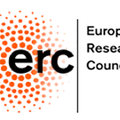
The European Research Council (ERC) has announced the ERC Starting Grants for young researchers. Four of them are scientists from TU Delft. This European grant of €1.5 million for a five-year programme is intended to enable individual scientists to build their own teams and conduct groundbreaking research.
23 December 2021
Super-fast technique measures heme enzyme reaction as it happens
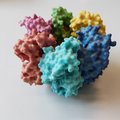
Researchers from TU Delft found an unexpected new enzyme intermediate at work in enzymes that contain heme, a cofactor that’s vital for many processes in our body such as the breaking down of toxins in the liver. The researchers used new, rapid techniques, which are less invasive than existing methods. The results, published in ACS Catalysis, increase our understanding of heme proteins and enzymes and how they can be engineered.
16 December 2021
NWO-Veni grant for 4 researchers of TNW faculty
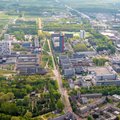
NWO has awarded Veni grants to four researchers from the TNW faculty, with funding of up to 250,000 euros per grant. This will enable these researchers to further develop their own research ideas over a period of three years.
08 December 2021
Counting electronic states in a single molecule
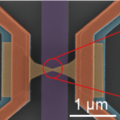
A team of researchers from the UK, the Netherlands, Switzerland and Belgium has managed to measure changes in the energy levels of a free radical molecule in a magnetic field. They were able to measure directly the thermoelectric currents inside the molecule, using a new method called thermocurrent spectroscopy. This method, published in Nano Letters, is an important tool for both chemical synthesis and single-molecule electronics.
08 December 2021
Building a lensless microscope to study next-gen chips
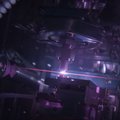
Transistors used in computer chips have now reached the tiny scale of mere nanometres, yet chips manufacturers still lack the optical power to study this new generation of chips. Researchers from TU Delft have built a lensless microscope to make an image at the scale of 200 nanometres. With further refining of this technique the researchers expect to bring images of nanoscale transistors within their grasp in the next two years.
24 November 2021
TU Delft creates one of the world’s most precise microchip sensors – thanks to a spiderweb
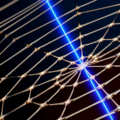
A team of researchers from TU Delft managed to design one of the world’s most precise microchip sensors; the device can function at room temperature – a ‘holy grail’ for quantum technologies and sensing.
19 November 2021
Delft scientists put the spotlight on combined capture and conversion of CO2
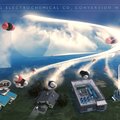
CO2 can be electrochemically converted into valuable chemicals and fuels. Both capturing and converting CO2 do, however, require a lot of energy. An optimal combination of both processes can save a lot of energy and reduce the loss of materials. The TU Delft research group of David Vermaas recently published a paper in Nature Catalyses, summarising the various ideas on how to achieve this.
11 November 2021
Interview with Spinoza Prize winner Lieven Vandersypen

Lieven Vandersypen, Professor in Quantum Nanoscience and scientific director of Qu-Tech, has been awarded a Spinoza Prize for his pioneering work on quantum computation, which holds great promise for global problems in health, climate and energy. With his prize Vandersypen also intends to encourage girls to go into the field of technical sciences, as well as help people tell the difference between facts and fabrications. “The first time I heard about quantum computers I thought: how are these things possible?"
05 November 2021
TU Delft Education Heroes in the spotlight during Education Day on 4 November
